Pigeons and doves thrive when their owners prioritize proper nutrition, making feeding pigeons and doves a cornerstone of healthy pet bird care. According to experts at Palomacy, a balanced diet combines professionally formulated foods with essential supplements to mimic their natural needs. Whether you’re rescuing a street pigeon or nurturing a domesticated dove, understanding these fundamentals prevents common issues like obesity, nutritional deficiencies, or digestive problems. In this guide, we’ll break down recommended foods, feeding schedules, and extras to keep your birds vibrant and active.
For high-quality seed mixes tailored for these species, check out the hagen pigeon dove seed, which provides a solid base with essential grains.
Professional Formulated Foods for Pigeons
Pigeons require a high-quality pigeon feed that’s nutritionally balanced and includes ingredients like safflower for healthy fats. Look for mixes sold in feed stores rather than pet shops, as they often contain better proportions of grains, peas, and legumes. Always pair this with a multivitamin and mineral supplement to fill any gaps.
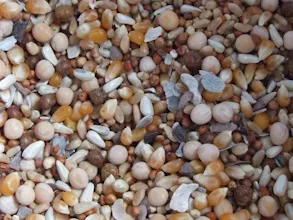 High quality pigeon feed mix with safflower, grit, and oyster shell
High quality pigeon feed mix with safflower, grit, and oyster shell
Check the label to ensure it’s free from fillers and excessive corn, which can lead to weight gain. A typical daily portion starts at about 2 tablespoons per bird, adjusted based on consumption.
Base Diets for Doves
Doves do well on seed blends or pellets formulated for their smaller size and preferences. Products like Kaytee Dove Food and Seed blends, available in pet stores, work excellently and are suitable for pigeons too. These provide a mix of millet, sunflower hearts, and other seeds that support feather health and energy levels.
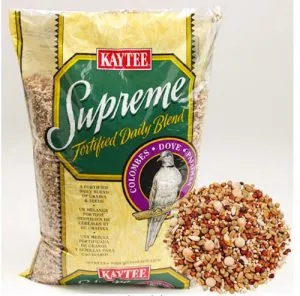 Kaytee dove food and seed blend packaging
Kaytee dove food and seed blend packaging
Pellet options, such as nutri bird a 21, offer complete nutrition in a convenient form, ideal for doves transitioning from wild diets.
The Meal Feeding Method
The best approach for feeding pigeons and doves is meal feeding: offer a measured portion of fresh food each morning, ensuring it’s fully consumed by evening. This prevents selective eating—where birds gorge on fatty seeds like safflower—and promotes balanced intake. Overfeeding leads to seed waste, mess, and health risks like fatty liver disease.
Start with 2 tablespoons per bird and reduce until nothing remains at sunset. This method, endorsed by avian experts, simplifies cleanup and mimics natural foraging patterns. In my experience fostering rescued pigeons, birds adjusted quickly, showing brighter plumage and higher activity within weeks.
Essential Supplements: Grit, Oyster Shell, and Vitamins
Sprinkle a pinch of bird-safe grit and crushed oyster shell on food like seasoning. Grit aids digestion by grinding seeds in the gizzard, while oyster shell provides calcium for strong bones—especially vital for laying doves.
Avoid overdoing grit; the myth of unlimited supply can cause impaction. Instead, add avian vitamins like Lafeber’s, Nekton-S, or Kaytee Molting & Conditioning directly to food. These support immunity and molting cycles.
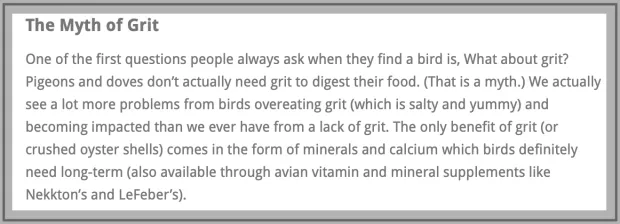 Infographic debunking the myth of unlimited grit for pigeons and doves
Infographic debunking the myth of unlimited grit for pigeons and doves
For similar conditioning formulas, explore cockatiel food diet options adaptable for doves.
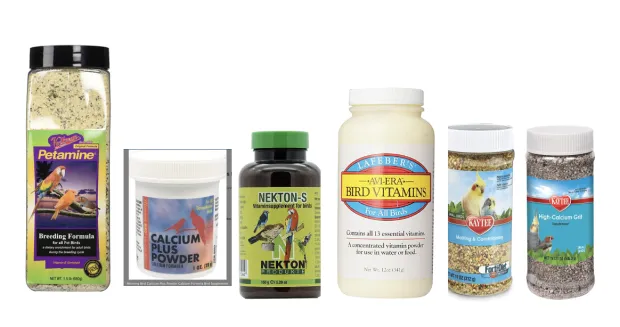 Avian vitamin supplement product display
Avian vitamin supplement product display
Incorporating Vegetables and Greens
Offer chopped veggies or greens 3-4 times weekly to boost vitamins A, C, and fiber. Safe choices include carrots, broccoli, snap peas, dandelion greens, kale, cauliflower, lettuce, spinach (sparingly), edamame, and bell peppers. These prevent seed-only diets that lack antioxidants.
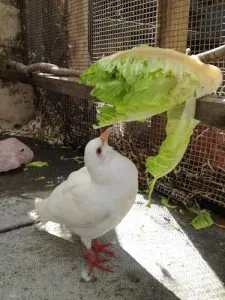 Young king pigeon eating romaine lettuce in aviary
Young king pigeon eating romaine lettuce in aviary
Ringneck doves particularly love minced carrots and broccolini.
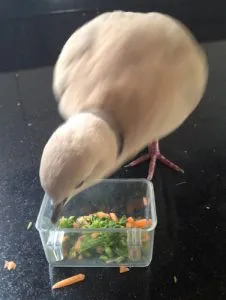 Ringneck dove eating minced carrots and broccolini
Ringneck dove eating minced carrots and broccolini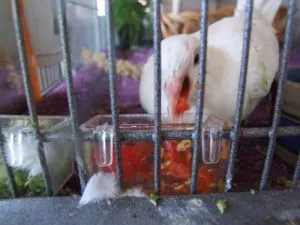 Ringneck dove devouring chopped bell peppers
Ringneck dove devouring chopped bell peppers
Varieties like food for parrotlets can inspire veggie integrations for small doves.
Fresh Water and Growing Your Own Greens
Provide clean, fresh water daily in a shallow dish—change it to prevent bacterial growth. For ultimate freshness, consider growing your own greens; adopter tips include planting dandelions or chickweed for natural foraging.
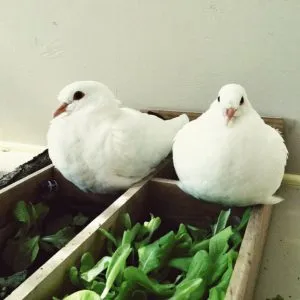 Pigeons Quince and Yuzu enjoying garden greens
Pigeons Quince and Yuzu enjoying garden greens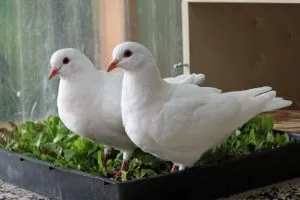 Pigeons grazing on home-grown vegetables
Pigeons grazing on home-grown vegetables
This not only enriches their diet but also encourages exercise.
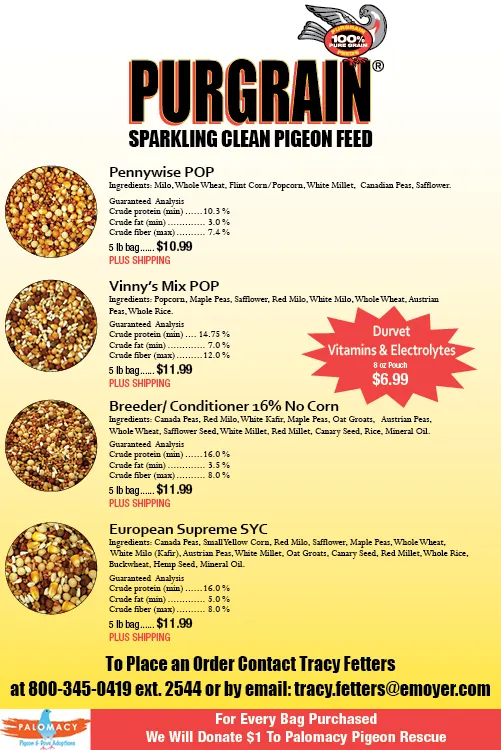 Purgrain products lineup for pigeons and doves
Purgrain products lineup for pigeons and doves
Final Thoughts on Feeding Pigeons and Doves
Mastering feeding pigeons and doves involves balanced seeds or pellets, meal portions, minimal grit and calcium, regular veggies, vitamins, and pristine water. These practices, drawn from Palomacy’s expertise, ensure longevity and vitality—often extending life from wild averages of 3-5 years to 10+ in captivity. Consult an avian vet for personalized advice, especially for rescues.
Ready to optimize your birds’ diet? Explore more bird care tips like best food for cockatoo and share your success stories in the comments.
References
- Palomacy Pigeon & Dove Rescue: Nutritional Recommendations
- Purgrain Products: www.purgrain.com
- Planting Greens Guide: Rescue Report
